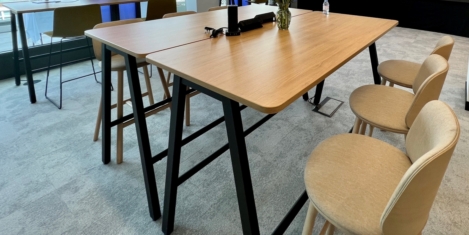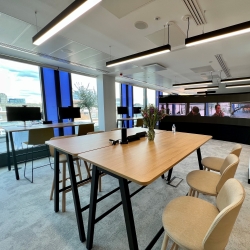To provide the best experiences, we use technologies like cookies to store and/or access device information. Consenting to these technologies will allow us to process data such as browsing behaviour or unique IDs on this site. Not consenting or withdrawing consent, may adversely affect certain features and functions.
The technical storage or access is strictly necessary for the legitimate purpose of enabling the use of a specific service explicitly requested by the subscriber or user, or for the sole purpose of carrying out the transmission of a communication over an electronic communications network.
The technical storage or access is necessary for the legitimate purpose of storing preferences that are not requested by the subscriber or user.
The technical storage or access that is used exclusively for statistical purposes.
The technical storage or access that is used exclusively for anonymous statistical purposes. Without a subpoena, voluntary compliance on the part of your Internet Service Provider, or additional records from a third party, information stored or retrieved for this purpose alone cannot usually be used to identify you.
The technical storage or access is required to create user profiles to send advertising, or to track the user on a website or across several websites for similar marketing purposes.
 “My engineering students had come to class with technology on their minds.” So says artist and design researcher Sara Hendren, author of What a Body Can Do: How we Meet the Built World. It’s a fascinating book in which she consciously pushes back against the prevailing narrative that so-called smart technology has a fix for every problem. As a professor teaching design for disability at Olin College of Engineering, Massachusetts, Hendren draws attention to the assumptions that drive normative behaviours to define what is a ‘problem’ in the first place. (more…)
“My engineering students had come to class with technology on their minds.” So says artist and design researcher Sara Hendren, author of What a Body Can Do: How we Meet the Built World. It’s a fascinating book in which she consciously pushes back against the prevailing narrative that so-called smart technology has a fix for every problem. As a professor teaching design for disability at Olin College of Engineering, Massachusetts, Hendren draws attention to the assumptions that drive normative behaviours to define what is a ‘problem’ in the first place. (more…)






 Zoom has opened a new London ‘Engagement Hub’ which the firm claims will spearhead the shift from traditional office spaces to ‘experiential working hubs’. With the demand for hybrid working and remote capabilities giving rise to unconventional ways of operating, Zoom says it has designed its new office to support the changing nature of the employee experience, marking a new era of modern work.
Zoom has opened a new London ‘Engagement Hub’ which the firm claims will spearhead the shift from traditional office spaces to ‘experiential working hubs’. With the demand for hybrid working and remote capabilities giving rise to unconventional ways of operating, Zoom says it has designed its new office to support the changing nature of the employee experience, marking a new era of modern work. 

























July 24, 2023
Should work help to define your identity? Perhaps, but first consider this…
by Dr Tracy Brower • Comment, Wellbeing